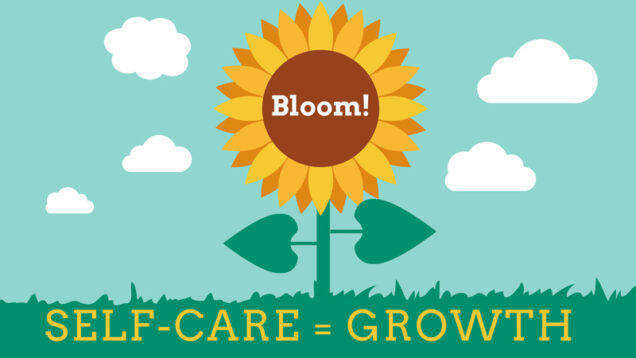The Importance of Self-Care with some simple tips and tricks

Self Care is defined simply as “care for oneself” (merriam-webster.com). Its definition is so simple but the value of self care is not measurable. There are many studies, articles, and trainings done on the importance of self care especially in the field of helping people. This will help with how their work being so highly demanding and can suffer from burnouts, possible compassion fatigue, and even secondary stress. This can interfere with the ability to take care of clients and provide the best care for them as well. It is not possible to provide the best care for the clients, professionals need to take care of themselves first or their 100% will not be in the work they do.
As mentioned there were many studies done regarding the effects of the trauma professions and self care. One particular study was held the question of ““How do mental health workers describe coping with vicarious trauma?” The research subquestion was: “How do mental health workers use self-care in response to vicarious trauma?” The study sample was 12 mental health workers, from a population of mental health workers currently working in the field of mental health in a northeastern state.“ (Sawicki, 2019) With this field of professional, there are constant stories that can easily be linked to trauma and therefore we, as professionals, are exposed to vicarious trauma which can effect us in similar ways to as if we experiences the trauma ourselves. Vicarious trauma is defined as “ the emotional residue of exposure that counselors have from working with people as they are hearing their trauma stories and become witnesses to the pain, fear, and terror that trauma survivors have endured.” (American Counseling Association) The most recommended way to curb this effect is to take part in self care activities. Self Care will look different from one person to the next person because what one does to relax and take care of themselves looks different. There are some basic universal rules to follow in order to abide by self care.
- Create a “no” list, with things you know you don’t like or you no longer want to do. Examples might include: Not checking emails at night, not attending gatherings you don’t like, not answering your phone during lunch/dinner.
- Promote a nutritious, healthy diet.
- Get enough sleep. Adults usually need 7-8 hours of sleep each night.
- Exercise. In contrast to what many people think, exercise is as good for our emotional health as it is for our physical health. It increases serotonin levels, leading to improved mood and energy. In line with the self-care conditions, what’s important is that you choose a form of exercise that you like!
- Follow-up with medical care. It is not unusual to put off checkups or visits to the doctor.
- Use relaxation exercises and/or practice meditation. You can do these exercises at any time of the day.
- Spend enough time with your loved ones.
- Do at least one relaxing activity every day, whether it’s taking a walk or spending 30 minutes unwinding.
- Do at least one pleasurable activity every day; from going to the cinema, to cooking or meeting with friends.
- Look for opportunities to laugh!
The more we do these the more we will be able to provide the best care to our clients. We can also pass on the self care activities we do to our clients to help them also practice self care because it is just as important for them to put to use.
References:
Michael, R.(2018). What self-care is- and what it isn’t. Psych central Blog. Retrieved from www.psychcentral.com
Sawicki, S. (2019). Mental Health Workers, Vicarious Trauma, and Self-care: A phenomenological Approach. Capella University.